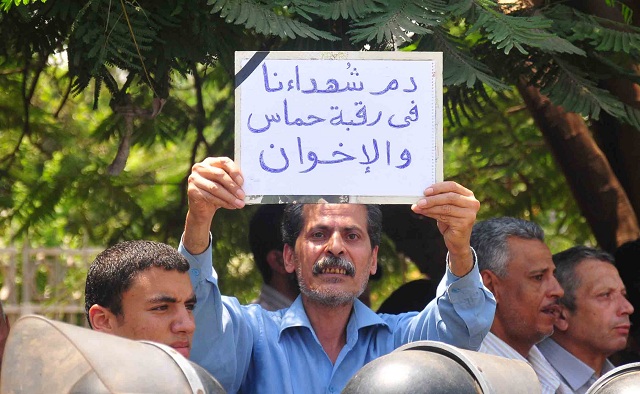When President Hosni Mubarak asked the parliament to amend the Egyptian constitution in February 2005 to allow multi-candidate presidential elections rather than holding a referendum on one candidate, it appeared that the winds of democratic change had reached the Arab world.
It was not a strictly-Egyptian dream because many in the Arab world still believe that any change in the region starts in Egypt.
But a few months later this dream turned out to be just a chimera like its predecessors, as it transpired that the Arab region’s inability to witness democratic change will continue. Because of this inability, this region has earned the title “the Arab Exception during the two global waves of democratic change: the first in that started in the mid-1970s and the second which kicked off in the early 1990s.
Although the change in the presidential electoral system in Egypt gave us hope of ending this exception, it came within the framework of a US project to spread democracy. The desertion of this project was a factor in the dispersal of the hope in a serious move towards democratic change in Egypt.
One of the most important indications of the dispersal of hope is the failure to amend article 77, which allows the president to be re-elected without restrictions, and restore it to they way it was before 1980, when it limited the re-election of the president to two consecutive terms.
The constitutional amendments approved last year ignored this article, which was a clear indication of the absence of a inclination towards democratic change, and therefore there was no need of analyzing the content of this amendment, which included about 30 constitutional articles, to realize that it reinforces the state of political stagnation, not only in Egypt, but in the region as a whole.
Nevertheless, what is happening now in Algeria shows that the political stalemate in Egypt may not only consolidate the rigid conditions in the Arab world, but it may also pull them back.
Along the lines of article 77 of the Egyptian Constitution, the coalition government in Algeria amended article 74 of the Constitution to allow for an open-ended presidential terms instead of limiting them to two.
The Algerian parliament approved the amendment last Wednesday (Nov. 12) by an overwhelming majority vote of 500 against 21, while eight members abstained, constituting less than 0.5 percent. This tiny percentage summarizes the current Arab political scene.
When it amended article 74 of the constitution last Wednesday, the Algerian parliament looked like its Egyptian counterpart in 1980 when it approved the amendment to article 77. In both cases, there was an overwhelming majority and the opposition could only be seen through a microscope.
This means that the Arab world is going backward. Instead of making constitutional progress by emulating Algeria’s 1996 achievement when it amended the constitution to limit the presidential terms to two consecutive ones, Egypt has fallen behind. A few days ago Algeria returned to what Egypt had regressed to in 1980.
One of the most important revelations of the recent constitutional amendment in Algeria is that Islamic movements’ commitment to democracy remains shrouded with skepticism, in spite of the progress they appear to be making in this regard.
The Muslim Brotherhood in Algeria (the Movement for a Peaceful Society or HAMS) has supported the eternal presidency in its capacity as a junior partner, or rather a decorative annex of the coalition government.
They had taken this position despite the fact that their brothers in Egypt are demanding two limited presidential terms. This was not the position of the Brotherhood in Egypt, as they implicitly welcomed the eternal presidency in 1980 when late President Anwar Sadat wooed them with amendment to article 2 of the constitution by stipulating that Sharia is the main source of legislation, rather than a main source as it was before in the constitution of 1971.
When the problem is not only the ruling regimes, but also the forces that pose themselves as an alternative to these regimes, eternal presidency becomes an embodiment of a political stalemate with no future.
Dr Waheed Abdel Meguid is an expert at Al Ahram Center for Political and Strategic Studies.egic Studies.

![ElBaradei said on his twitter account that he had “called for parliamentary election boycott in 2010 to expose sham democracy. Today I repeat my call, [we] will not be part of an act of deception”.(AFP/File Photo)](https://www.dailynewsegypt.com/app/uploads/2012/12/ElbARADEI.jpeg)